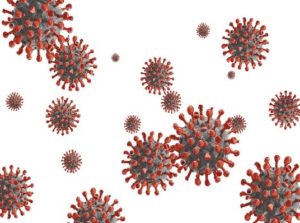
The Indian Institute of Science (IISc) recently developed an alternative mechanism to render viruses like SARX-Cov-2 inactive.
This study talks about a new discovery by experts, an alternate means to help fight the COVID-19 virus in a way that it cannot spread further.
We are on our third year of the COVID-19 pandemic. The scientists and experts of the world have put in their collective efforts to research and discover the best possible measures to prevent this pandemic from going on further. Although they have not provided a permanent solution, their efforts have not been in vain. Recently, the Indian Institute of Science (IISc) has developed an alternative mechanism to render viruses like SARX-Cov-2 inactive. This study talks about a new discovery by experts, an alternate means to help fight the COVID-19 virus in a way that it cannot spread further.
What Have The Experts Found?
In a study published in Nature Chemical Biology, researchers have explained the design of a new class of ‘artificial peptides or miniproteins’ that can not only block the entry of the virus into our cells but also clump virus particles together. This, in turn, will reduce their ability to spread the infection. In this new study, researchers have used this approach to design mini proteins that can bind to and block the spike protein on the surface of the SARS-CoV-2 virus. This binding was further characterized extensively by cryo-electron microscopy (cryo-EM) and other biophysical methods.
A Lock And Key Effect
A protein-protein interaction is often like that of a lock and a key. This interaction can be hampered by a lab-made miniprotein that mimics, competes with, and prevents the ‘key’ from binding to the ‘lock’, or vice versa. The helical, hairpin-shaped peptides form a dimer by pairing up with another of its kind. Each dimeric bundle presents two faces to interact with two target molecules. Experts based this on a hypothesis that two faces would bind to two separate target proteins, locking all four in a complex and blocking the targets’ action, thus rendering the virus inactive.
Effectiveness Of This Therapy
The research teams’ next step is to find out if SIH-5 would be useful for preventing Covid-19 infection. To answer this, the team first tested the miniprotein for toxicity in mammalian cells in the lab and found it to be safe. Raghavan Varadarajan, Professor at MBU, carried out some experiments to study the effectiveness of the vaccine. Hamsters were dosed with the miniprotein, followed by exposure to SARS-CoV-2. These animals showed no weight loss and had greatly decreased viral load as well as much less cell damage in the lungs, compared to hamsters exposed only to the virus. The researchers believe that with minor modifications and peptide engineering, this mechanism could help with viruses like SARS-Cov-2.




 Driving Naari Programme launched in Chandigarh
Driving Naari Programme launched in Chandigarh






























